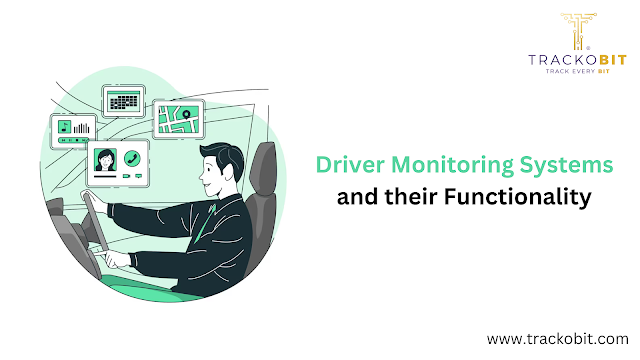7 Reasons to Opt Route Planning Software for Electric Vehicles
Electric vehicles (EVs) have gained great momentum ever since people are rooting for more sustainable choices.
Along with the increase in electric vehicle adoption, there is an increase in complexities related to these mobility
solutions too.
From range anxiety to limited charging infrastructure, these are a few complexities that restrict fleet managers to use EVs on longer routes. Many drivers opt for the latest electric vehicles 2023 models only for shorter commutes and hesitate to use them for covering extra miles.
To curb these complexities, advanced route planning software for electric vehicles is the greatest solution of all time. With real-time data on efficient routes, nearby charging infrastructure, and traffic alerts, drivers can plan journeys on any route.
Impressed with the idea of route planning for electric vehicles? Let’s dive around 7 ultimate reasons to choose the best route planning software 2023.
7 Compelling Reasons Why Route Planning Software for Electric Vehicles is a Must!
Integration with EV Telematics
Route planning software for electric vehicles is capable of integrating well with electric vehicle telematic systems, with which fleet managers can have enhanced vehicle monitoring and data analysis. Seamless integration with Battery Management System (BMS) allows real-time monitoring of battery status, range, and energy consumption in real time.
Moreover, by taking this information into account, drivers then plan their route well, know of the nearby charging stops, and optimize the entire driving experience.
Real-Time Charging Station Data
Route planning software other than predicting efficient routes helps in identifying charging status (SOC) and locating the nearby charging stations along their route through real-time data. This information allows EV operators to plan their journeys well, reach nearby charging stations timely, and avoid running out of charge.
With real-time data integration, it is possible to do dynamic rerouting which ensures that drivers adjust their plans according to the availability of charging infrastructure.
3. Better safety and compliance
With Best route planning software, logistics businesses with EV fleets stay on top of safety & compliance. With optimized route, fleet managers can reduce the amount of time drivers spend on the road, thus eliminating the chances of fatigue, distraction or exhaustion.
In addition, the system ensures that drivers are following the posted speed limits, and have access to real-time traffic updates and notifications, to avoid congested roads or potential dangers.
4. Energy Efficiency
Since electric vehicles come with a limited battery range, it becomes imperative to plan and optimize routes to be able to maximize their mileage. With route planning algorithms, fleet operators can know about factors such as traffic conditions, weather forecasts, and elevation changes to be able to operate their vehicles with heightened efficiency.
Moreover, by identifying the most energy-efficient routes, electric vehicle owners can further optimize their driving experience, extend their range, and reduce energy consumption.
5. Environmental Considerations
Route monitoring software 2023 takes environmental factors into account as it helps promote eco-friendly driving practices. By suggesting better and shortest routes for electric vehicles 2023, operators can minimize greenhouse gas emissions and as well avoid operating in environmentally sensitive areas, which can help reduce carbon footprint big times.
Moreover, this greatly aligns with electric mobility’s ethos of promoting sustainable transportation options while minding environmental consciousness.
6. Enhanced Range Accuracy
The limited range of EVs is a cause of concern for EV drivers. The anxiety is real when drivers cannot predict whether their vehicle will be able to cover the assigned route or not. This is why route planning software is a must as it can provide accurate range predictions, and better & short routes while taking into account variables like driving style, traffic conditions, etc.
With reliable range estimations and efficient routes, drivers can eliminate anxiety and confidently plan and fulfill their journeys.
7. Customization and Personalization
The best thing is that route planning for EVs offers a great deal of customization options to meet individual drivers' preferences. EV operators can beforehand put in the system preferred charging networks, maximum charging time, and specific landmarks to contribute to efficient journeys.
By tailoring the route according to their preferences, drivers can witness a more personalized and convenient experience, irrespective of which electric vehicles 2023 model they are driving.
Future of Route Planning for Electric Vehicles - Way Promising Than You Think!
Well, looking into the future, the scope of route management software for electric vehicles is quite promising and holds a number of untapped possibilities. In the future, we are going to see more advanced AI algorithms, integration with smart grid systems, seamless charging network integration, and predictive range estimation that could result in a more seamless and efficient EV driving experience.
Additionally, much-advanced innovations in real-time charging station availability updates, more dynamic route adjustments based on charging infrastructure, and smart energy management will soar the demand for EV vehicles.
Conclusion
As electric vehicles continue to gain momentum, the need for efficient and reliable route planning software & methods can never be underlooked. Right from optimal charging station allocation, energy efficiency optimization, and real-time data integration to environmental considerations, route planning for electric vehicles in 2023 aids multitudes of advantages fleet operators could imagine.
By leveraging disrupting advanced telematics and route planning technology, EV owners can minimize range anxiety, enhance their driving experience, and contribute to a more green future.
.png)

.png)

Comments
Post a Comment